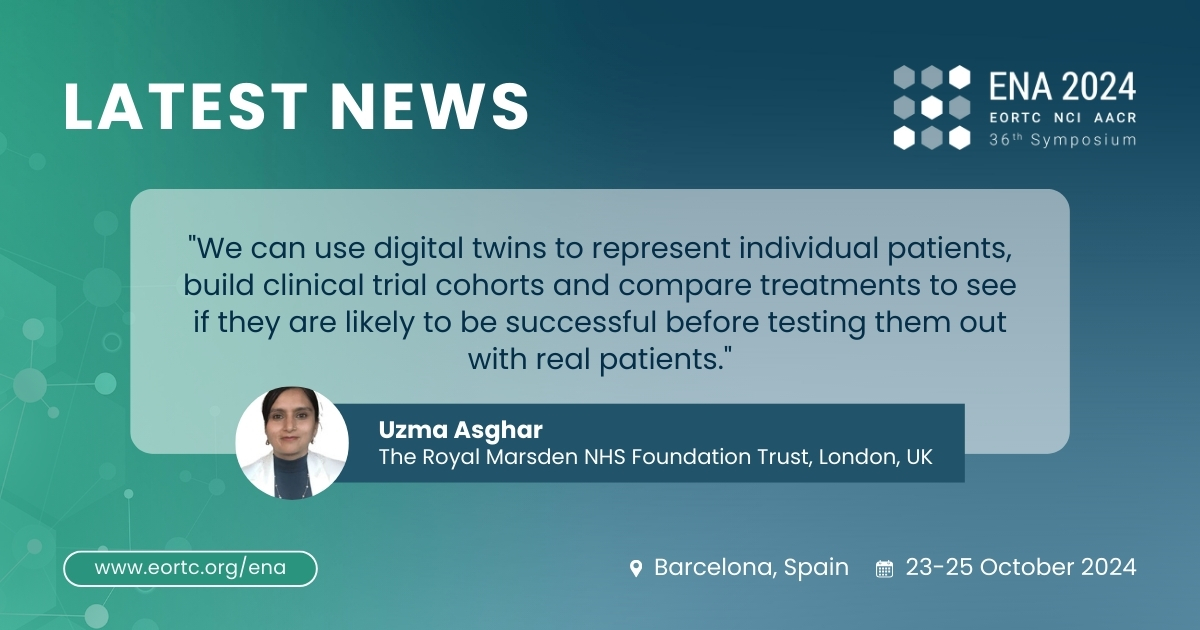
Predicting treatment efficacy among cancer patients via ‘digital twins’
“ENASymp24 latest news: Scientists create cancer patients’ ‘digital twins’ to predict how well treatments may work.”
At the 36th EORTC-NCI-AACR Symposium in Barcelona, researchers introduced a transformative approach to cancer treatment using “digital twins,” a technology called FarrSight®-Twin.
This innovative method accurately simulates clinical trials by recreating the biological profiles of individual cancer patients, drawing on data from thousands of cases treated in various ways.
Dr. Uzma Asghar, Co-founder and Chief Scientific Officer at Concr, presented the findings, emphasizing the potential to run virtual trials that could precede and inform actual patient testing.
The researchers demonstrated that their digital twins could effectively mirror real clinical trial outcomes. In studies involving patients with breast, pancreatic, and ovarian cancers, the digital twins accurately predicted treatment responses, achieving a 75% success rate when patients received the best-predicted therapies, compared to a 53.5% success rate for other treatments. This significant improvement suggests that digital twins can enhance the selection of therapies, providing a more personalized approach to cancer care.
Moreover, the technology allows researchers to simulate multiple treatment scenarios early in the drug development process, optimizing the likelihood of finding successful therapies.
Dr. Asghar noted that the technology is currently being developed to predict treatment responses for individual patients in clinical settings, aiming to assist doctors in determining the most effective chemotherapy options.
Professor Timothy A. Yap from MD Anderson Cancer Center highlighted the importance of such digital tools in streamlining the drug development process, particularly in cancers with limited treatment options.
By leveraging these advanced simulations, researchers hope to accelerate the identification of effective therapies, ultimately improving outcomes for cancer patients.
This pioneering research marks a significant step forward in integrating digital technology with oncology, potentially reshaping the future of cancer treatment.
-
Challenging the Status Quo in Colorectal Cancer 2024
December 6-8, 2024
-
ESMO 2024 Congress
September 13-17, 2024
-
ASCO Annual Meeting
May 30 - June 4, 2024
-
Yvonne Award 2024
May 31, 2024
-
OncoThon 2024, Online
Feb. 15, 2024
-
Global Summit on War & Cancer 2023, Online
Dec. 14-16, 2023
